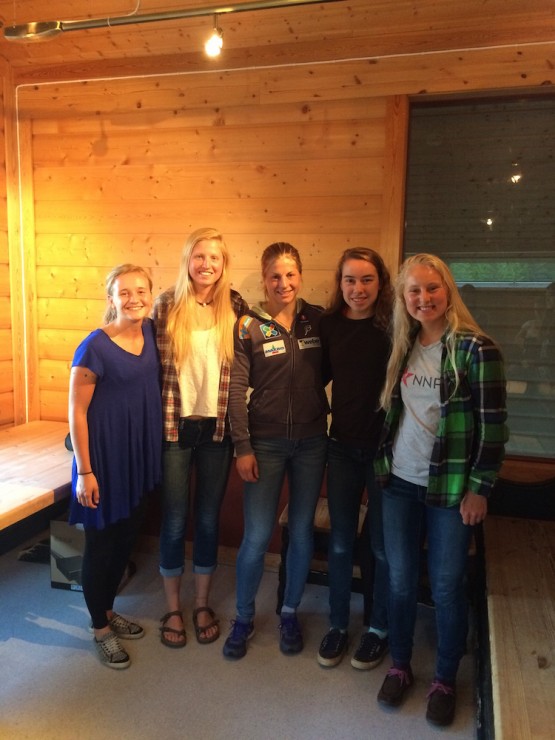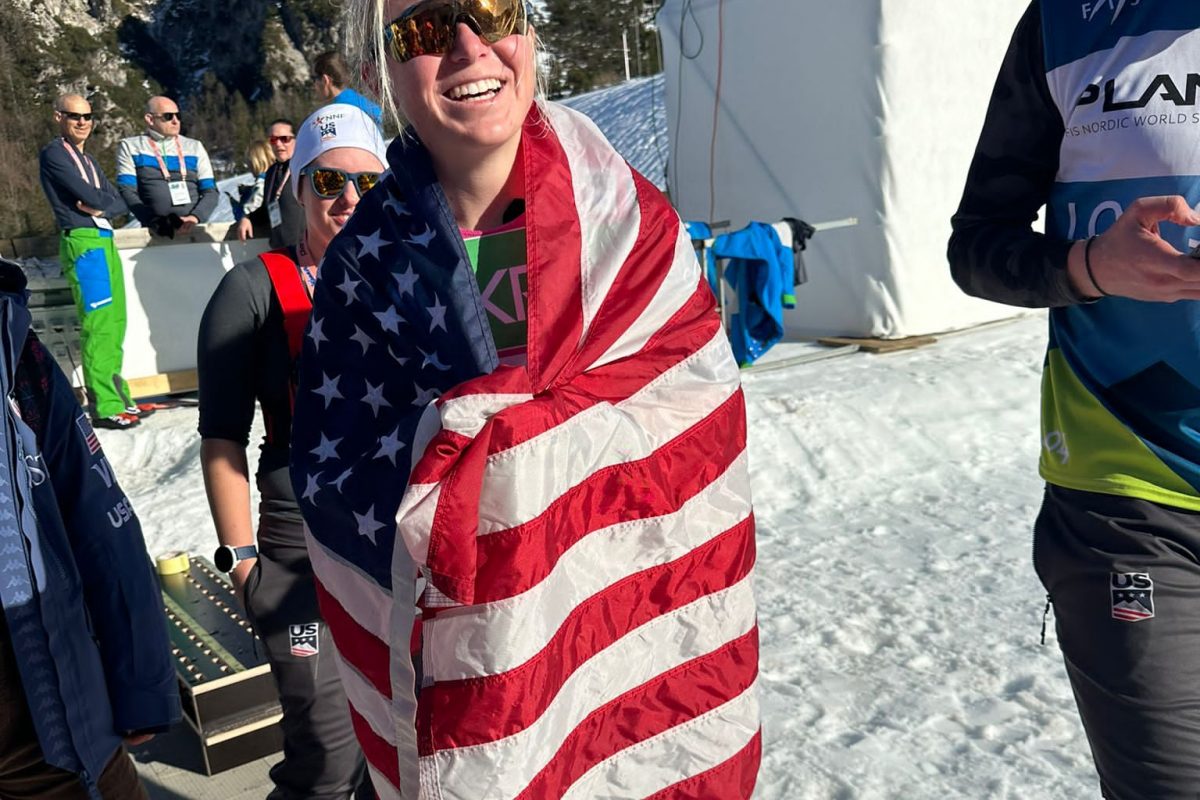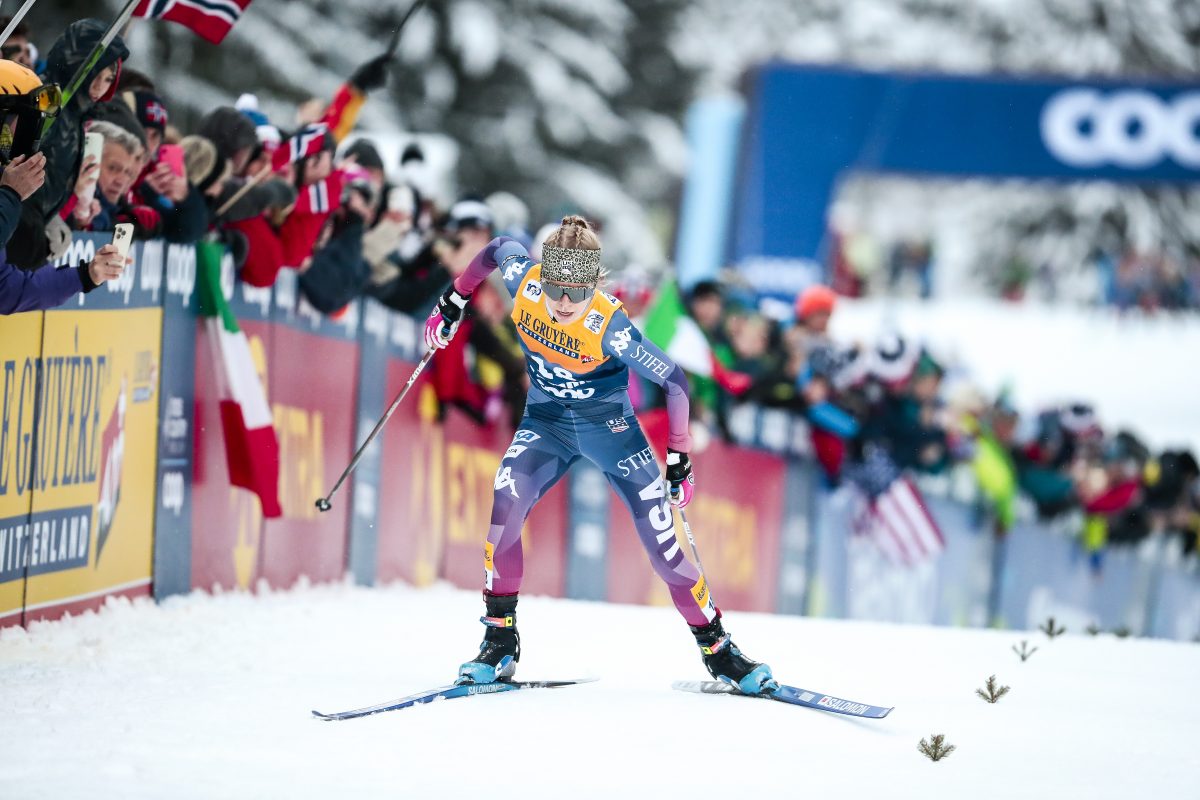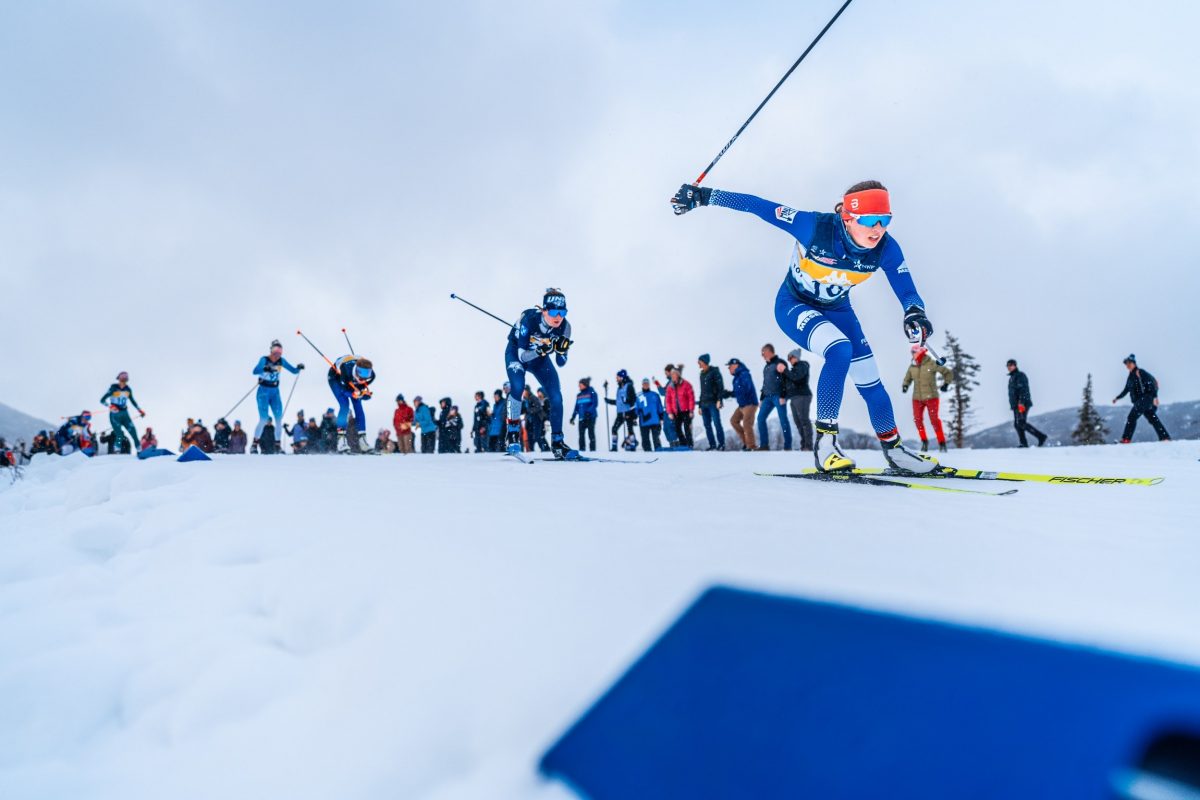Note: Seventeen-year-old U.S. juniors Hailey Swirbul, of the Aspen Valley Ski and Snowboard Club, and Hannah Halvorsen, of the Sugar Bowl Academy, interviewed Norwegian 2007 World Champion Astrid Uhrenholdt Jacobsen and collaborated on the above video. The two recently returned from the International Junior Camp in Oslo and Sjusjøen, Norway, which included 15 nations: Finland, Sweden, Norway, France, Italy, Austria, South Korea, Slovenia, Belarus, Latvia, Lithuania, Estonia, Czech Republic, Canada, and the U.S. Swirbul wrote and submitted the following recap of Jacobsen’s group presentation.
***
In the cross-country ski nation of Norway, it would be impossible for National Ski Team members to commit to anything besides full-time skiing, right? Wrong. Astrid Uhrenholdt Jacobsen, 28, member of the Norwegian Women’s National Team, is pushing that proposition aside. The skier is currently the only one of 10 women on the national team taking classes, choosing to “take a break from being an athlete and also prepare for life after skiing” by balancing full-time medical school with her full-time ski career.
“Studying and being an athlete is a good combination, it just takes dedication,” Jacobsen said.
As a junior, Jacobsen attended a school that prioritized academics and chose nordic skiing as more of a hobby. However, in a presentation to 135 juniors (ages U18 to U20) at the recent International Junior Camp in Sjusjøen, Norway, she noted that she focused on mastering technique while remembering to train with “high quality.”

“I worked so hard with things that were my biggest weakness,” Jacobsen said.
Her focused training led her to become a two-time junior world champion in Kranj, Slovenia (2005/2006). The following season at age 19, Jacobsen won her first World Championships title in the classic sprint in in Sapporo, Japan. In 2009, she suffered a career-altering mountain bike crash, in which she fractured both elbows, her jaw, and broke her back. She was told that she might not be able to ski again, but within eight months, Jacobsen finished seventh in the classic sprint at the Vancouver Olympics.
“You will struggle, you will fall … You will feel all of the work is for nothing, but it will always turn out in the end,” Jacobsen said.
While recovering from her bike crash, Jacobsen spent three months in a back brace and was confined to strict rehabilitation to regain movement in her body. Last season, she dislocated her shoulder in a rollerski accident, and directed her energy during that rehab toward studying to become a doctor.
“Instead of feeling like a failure, I felt like I did something,” she said of her schooling. “It is another thing that I love to do.”
Last season, after being accused of not fully committing to her athletic career, Jacobsen took courses “secretly,” rationalizing that she’s fastest when she is most relaxed and happy as a student-athlete. She enrolled in classes that didn’t require attendance, and told her teammates about her studies after a few months of school.
“[My teammates] were surprised when they saw I was able to pull off a full-time school in addition to skiing fast last winter,” Jacobsen said. “In a way I think I proved both athletes and coaches wrong.”
At 2015 World Championships in Falun, Sweden, she captured two medals: silver in the skiathlon and gold in the four-person relay.
Jacobsen attributed her ability to balance school, skiing and a social life to her “flexible mind.”
“I am really quick to change my plan,” Jacobsen said. “You need to be a bit flexible towards training plans for it to work.”
During the school year, Jacobsen cuts back on both traveling and social events to manage her schedule, and reminds herself of the importance of eating, drinking and sleeping properly to maintain a healthy mind and body. That mindset allows her to have time to chase multiple dreams and appreciate the long-term picture.
“I love skiing, but it is not my life,” Jacobsen said. “I don’t feel like everything is falling apart even when it’s not going so well.”
The World Cup skier of ten years has learned that “preparation is key,” she said. Before an important race, she enjoys relaxing reading or watching short movies. She always makes a race execution plan, and suggests to “keep reminding yourself of what you do well” and to remember your past successes as an athlete.
To this skier, even the slightest improvement, academically or athletically, is a win. Her advice to young athletes?
“I just want young athletes to think what they want, now and for the future, and make choices that will bring them there,” she said. “Hard work is required for success in all arenas, not just sport.”



